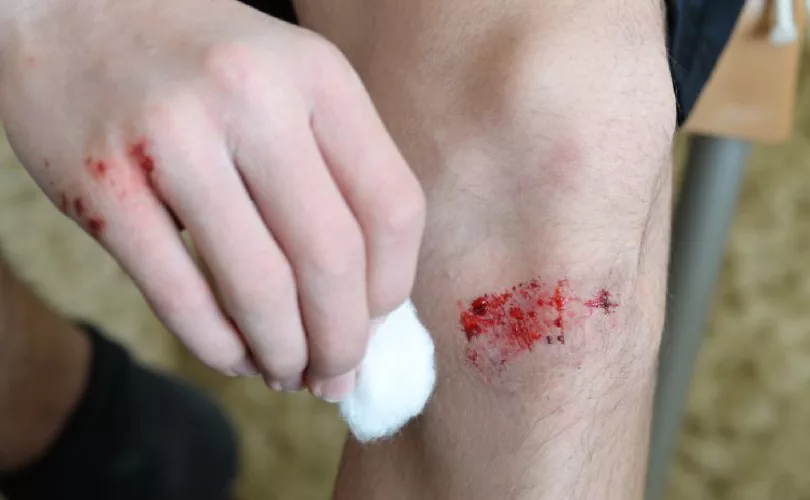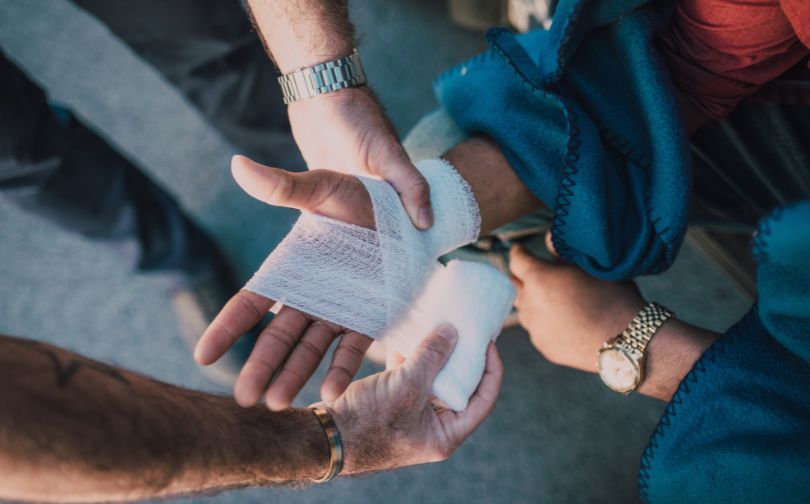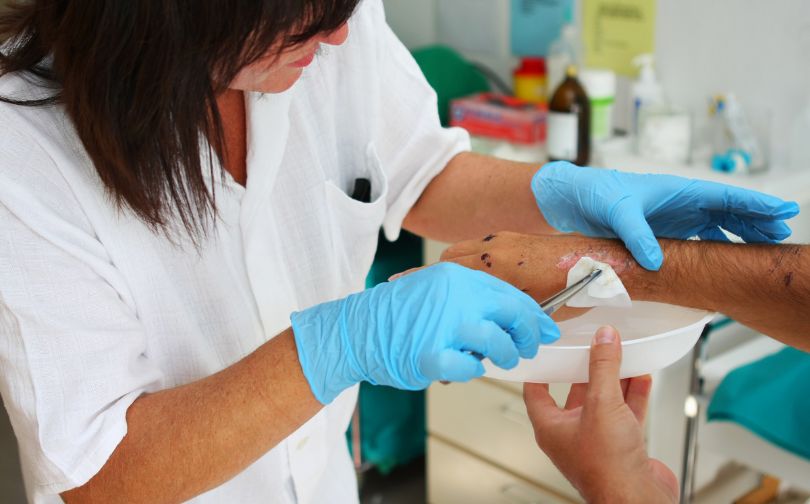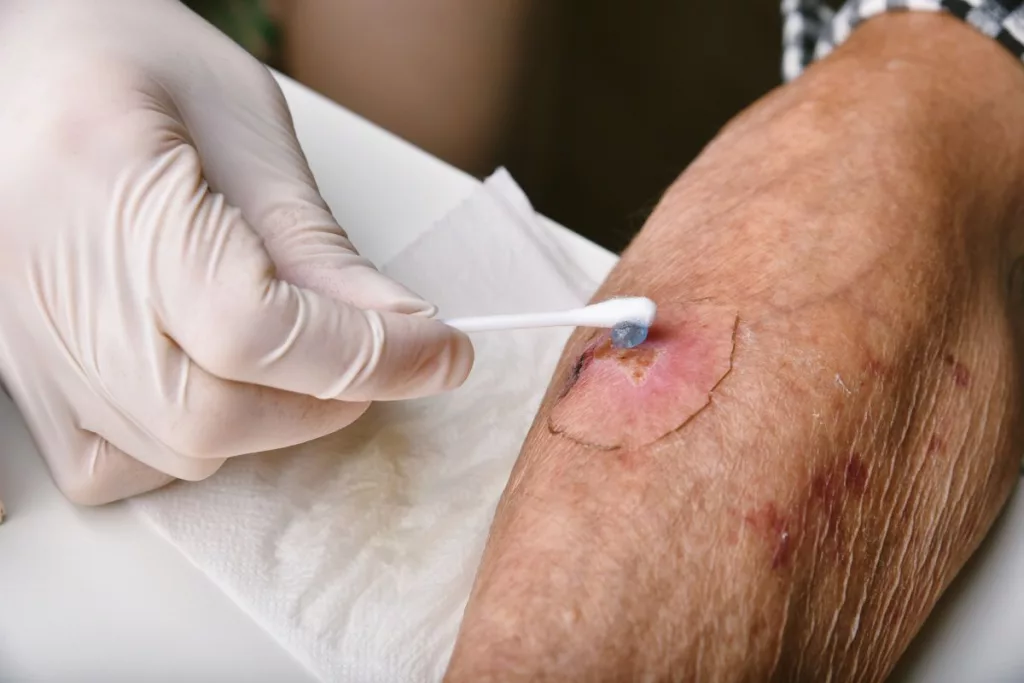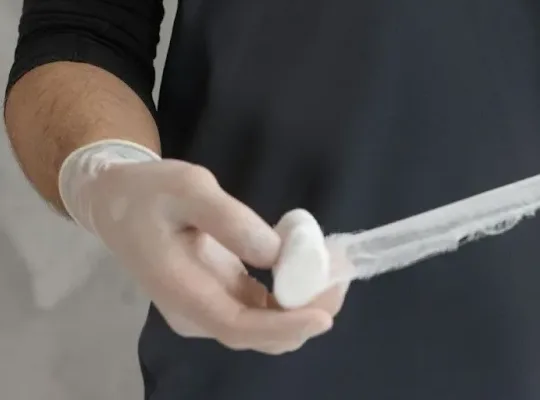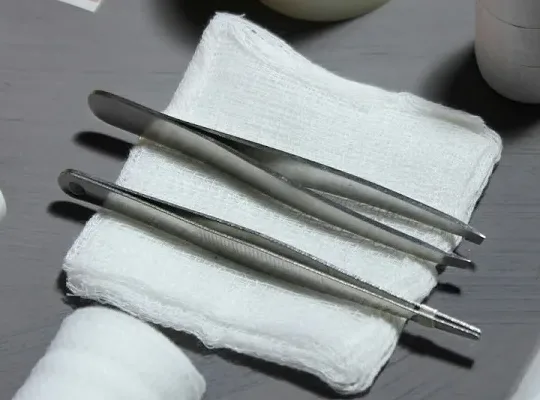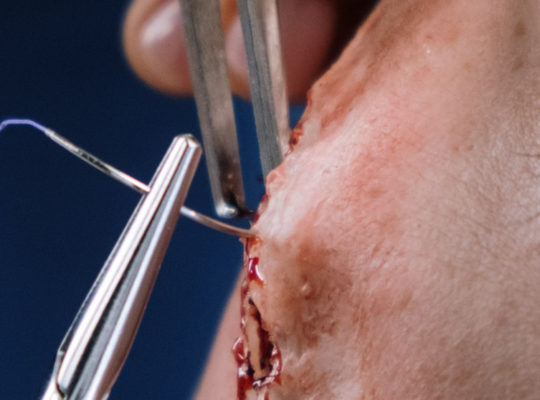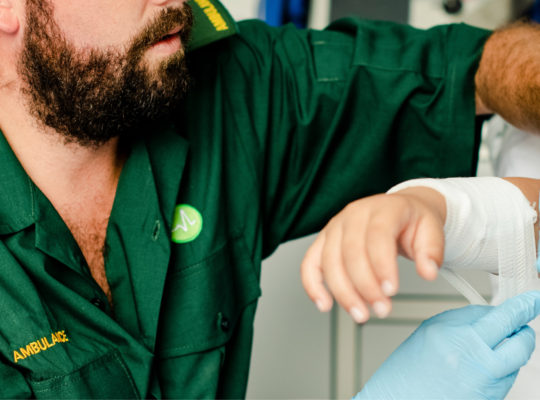When it comes to healing wounds, choosing between keeping them covered or leaving them exposed can be confusing. Some believe fresh air speeds up recovery, while others argue that covering wounds helps prevent infections and promotes faster healing.
One common concern is the risk of scabbing, which can lead to scars if not properly managed. A 2018 study found that moist environments are more effective for healing than dry ones, but that leaves many wondering about the best method for their own injuries.
In this guide, we’ll dive into both approaches, weighing the pros and cons of each, to help you make an informed choice. Whether you’re dealing with a minor cut or a deeper wound, understanding which method works best can make all the difference. Keep reading to find the answer that fits your needs!
Should You Bandage A Cut Or Leave It Uncovered?
In most cases, it is not beneficial to air out your wounds because they need moisture to heal. If you leave a wound uncovered, this can dry out the cells on the surface, slowing down the healing process.
Most wound coverings will promote wound healing because they provide a moist wound surface. Usually, if you have an open wound, it is recommended that you apply an antibiotic cream or ointment to clean the cut, and then cover it using a triangular bandage or gauze.
Doing this will ensure that your new skin cells stay alive, promoting healing. As well as this, it will help to protect the area from germs and dirt, which the wound would not be protected from if it is left open.
There are some exceptions to this, though, and not all wounds need to be covered. If you have minor cuts and scrapes, then these will be fine to leave uncovered. If you have any pressure ulcers on your heels, these can be left open to dry out.
If you have any concerns about a wound, you should contact a doctor to get it checked out. If you think the wound is not healing or it may be infected, it is a good idea to seek help.
Why Does Covered Wound Heal Faster?
Covering a wound accelerates healing by maintaining an environment conducive to cell regeneration. A moist wound environment is critical for this process. When a wound is kept covered, moisture levels are preserved, preventing the skin from drying out. This allows epithelial cells to move more easily across the wound surface, promoting faster closure.
Pain and inflammation are also reduced when wounds are covered. Without exposure to air, new skin cells remain hydrated, minimizing discomfort. Less pain can lead to faster recovery, as patients experience lower stress levels, contributing to overall healing.
Protection from external contaminants is another key benefit of covering wounds. This barrier lowers the risk of infection, as dirt and bacteria are kept away. The moist conditions further hinder bacterial growth, which adds another layer of defense against infection.
Cellular activity is enhanced in a covered wound. Collagen production and the development of new blood vessels are promoted in moist conditions, speeding up tissue regeneration. Additionally, growth factors within the wound fluid are preserved, aiding in repair processes.
Lastly, covering a wound reduces the likelihood of scarring. Scabs, which can pull on the skin and increase the risk of scars, are less likely to form when moisture is retained. This encourages more organized collagen production, leading to smoother healing with fewer visible marks.
Keeping a wound moist also facilitates the removal of dead tissue, helping to clear debris and further promote efficient healing.
What Happens When You Keep the Wound Uncovered?
Leaving a wound uncovered can negatively affect the healing process. One of the main issues is that exposure to air can dry out the new surface cells, leading to increased pain and slower recovery. Moisture is crucial for proper cell migration and tissue regeneration, and when wounds dry out, this natural process is hindered, which delays healing.
Pain levels tend to rise when wounds are left open. The lack of protection exposes the injury to environmental factors such as air and temperature changes, which heightens sensitivity. In some cases, this exposure can also cause irritation, further adding to the discomfort experienced during the healing phase.
Another significant concern is the higher risk of infection. When a wound is left uncovered, it is more vulnerable to dirt, bacteria, and other contaminants in the surrounding environment. Without a barrier, these harmful elements can easily enter the wound, potentially causing infection, which could further delay healing or lead to complications.
The absence of moisture not only slows down healing but can also result in more noticeable scarring. Dry conditions encourage scab formation, which is associated with thicker, more pronounced scars. Covering a wound helps maintain the necessary moist environment for tissue repair, reducing the chances of scab formation and limiting the extent of scarring.
How To Treat An Open Wound
If you suffer from open wounds, you must do the right thing to promote healing. Follow the steps below to treat an open wound:
- Wash your hands thoroughly with soap and clean water before you start treating the wound
- Remove any clothing and jewelry from the area near the wound
- Apply pressure to the wound to stop it from bleeding
- Examine the wound for any dirt or foreign objects
- Apply an antibiotic ointment to prevent any infection
- Dry the wound with a clean cloth
- Apply a bandage, band-aid or gauze to the wound
After you have covered the wound, you should make sure to check it every 24 hours. Remove the bandages at this time and check the wound for any signs of change or infection.
Then, follow the steps above again to cover the wound. You should never dress the wound if you cannot clean it, as this can trap the bacteria underneath it and cause further infection.
How Can You Make A Wound Heal Faster?
If you are hoping to speed up the healing process of your wound, the following are some great methods for making sure your wounds heal quickly.
Antibacterial Ointment
You can treat a wound using lots of different over-the-counter ointments. These ointments can prevent infections and help a wound heal much more quickly.
Antibacterial ointments are perfect for minor wounds to prevent infection.
Aloe Vera
Aloe Vera is rich in minerals and vitamins, and it comes from an Aloe plant. It contains glucomannan which promotes collagen production and regeneration. This substance promotes wound healing.
Evidence suggests that aloe vera is effective for wound healing as it helps to keep the skin moist and it eases inflammation of the skin.
To use aloe vera gel effectively you can apply a thin layer to the area where the wound is. If you want to apply it differently, you can dress the wound in a bandage that is soaked in aloe vera gel.
Honey
Honey is a great product that has anti-inflammatory properties. It is antibacterial, meaning it is used in wound healing.
Research has shown that honey can reduce the formation of scars and stop any bacterial growth in wounds.
Honey should not be used for post-operative wounds, but it is great when used on minor and major wounds.
Turmeric Paste
Turmeric comes from the turmeric plant. It is a spice that contains anti-inflammatory and anti-bacterial properties.
Turmeric is very effective when it comes to healing wounds quickly. It increases the production of collagen on the wound site, helping the healing process.
It is possible to mix turmeric with warm water to make a paste that can be applied to the wound. Then, you would need to cover the wound with a bandage to protect the site.
If you are considering using turmeric to treat a wound, it is a good idea to discuss this with your doctor.
Garlic
Garlic has many different anti-inflammatory properties. It has been found that if an ointment containing garlic is used on a wound, it will help the wound to heal faster.
You can add garlic to your existing ointment, or purchase an ointment that contains garlic.
Coconut Oil
Coconut oil may promote wound healing as it has a high concentration of monolaurin. This is a fatty acid that is known for having antimicrobial effects.
If you are choosing to use coconut oil to help to treat a wound, you should ensure that you are using high-quality coconut oil. This will help to reduce the risk of infection.
When Should You Contact A Doctor?
In most instances, you can treat minor wounds at home. However, in some cases, these wounds will need medical attention. If you experience any of the following problems, you should seek medical attention!
- A deep wound that will not stay closed
- A wound that is dirty or full of debris that you can’t remove yourself
- A wound that continues to bleed, even after you have applied pressure
- A wound that was caused by an animal bite
If you have any indications that your wound has become infected, you should speak to a doctor as soon as possible.
For instance, if the wound is warm or you are experiencing fever and chills, vomiting, or nausea, you may need some extra medical attention.
If your wound is infected, your doctor may prescribe antibiotics to treat the wound. If you are given antibiotics, you should complete the entire course, even if the symptoms are no longer present. This will ensure that the infection is completely gone.
Final Thoughts
So, there you have it! If you’re wondering whether leaving your wounds covered or uncovered is best for healing, you should now have all the information you need. In most cases, covering the wound is best for healing.
There are a few instances where this is not the case. If your wound is very shallow, then it will likely not need to be covered.
After reading this article, you should have all the information you need to promote fast healing.
FAQs
Does a Wound Need Air to Heal?
Wounds do not need air to heal. Exposing a wound to air can dry out the surface, potentially slowing healing. Oxygen needed for recovery is delivered internally through the blood. Keeping wounds covered helps maintain moisture and speeds up the healing process.
What Are the Benefits of Covering a Wound?
Covering a wound protects it from dirt and bacteria, reduces the risk of infection, and keeps the wound moist, which aids in faster healing. It also lowers the chance of scarring and prevents further irritation or injury to the affected area.
When Should You Leave a Wound Uncovered?
Wounds that are small, clean, and in low-risk areas may be left uncovered. These types of wounds are unlikely to become dirty or infected. However, larger wounds or those exposed to frequent friction or contamination should always be kept covered.
How Often Should You Change a Wound Dressing?
Wound dressings should be changed daily or whenever they become wet or dirty. This routine helps maintain a clean environment and supports proper healing by keeping the wound moist and reducing the risk of infection.

